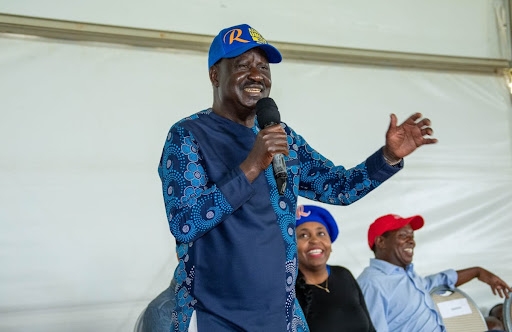Oil Marketing Companies (OMC) have defended the framework for the importation of fuel into the country saying the current arrangement serves Kenyans well.
Opposition leader Raila Odinga had on Friday claimed that the OMCs were responsible for the rising cost of fuel in the country despite falling global prices.
Raila also claimed that Ruto's government did not sign a government-to-government agreement with Saudi Arabia and the United Arab Emirates.
In a joint statement, the firms dismissed claims by the opposition that they are still being forced to mobilise dollars from the local market.
Instead, they said through the G-to-G framework, the local OMCs pay for petroleum in Kenya Shillings and are no longer required to source for dollars locally.
Revealing why the oil prices are still high in the country despite the G-to-G arrangement, the firms attributed the cost to international factors such as Dollar dominance.
The marketers stated that the acquisition of the Dollar was being done in a structured manner as stipulated in the G -to-G deal contrary to Raila's claims.
"The local cost of fuel is determined by international oil prices, the prevailing forex rate and applicable taxes. Data shows global oil prices have been steadily rising due to the global post-COVID recovery in demand and certainly more with the geopolitical challenges over the last 18 months,'' the marketers said.
"It is noteworthy that world prices have been rising since Quarter 2 of 2023 which coincided with the start of the G-to-G supply.''
The firms came out strongly to defend the G-to-G arrangement saying it was helping to stabilise the shiling against the Dollar.
The Kenyan Shilling hit the Ksh150 mark against the Dollar in the last two months.
At the moment, the Dollar is exchanging at Ksh152 compared to Ksh132 when the oil deal was struck in March, they said.
"This depreciation would have been worse were it not for the intervention of G-to-G. It is a fact that during the period of scarcity of forex before the G-to-G implementation, there existed a parallel market that was selling Dollars at rates much higher than the rate published by the Central Bank," read the statement in part.
On Friday, President William Ruto addressed concerns raised by Raila, maintaining that the oil deal was transparent and above board.
Ruto said the government only acted as a guarantor, not a broker, as it only pledged to ensure that the markers had access to the Dollar and make payments for the oil consignment.
“The international oil companies sell fuel directly to oil marketers in Kenya. The entire process is a private sector driven," he stated.
The opposition leader had alleged that the tendering process for the local companies was corrupted to aid them in evading paying taxes.











